At Least 354 People Executed In Iran In 2023
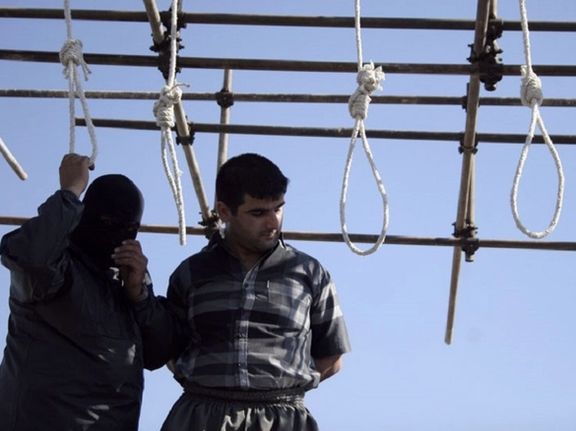
In the first half of 2023, at least 354 people, including six women, have been executed in Iran.

In the first half of 2023, at least 354 people, including six women, have been executed in Iran.
The Norway-based Iran Human Rights (IHRNGO) said Monday that Baluch minorities accounted for 20% of all executions. The number of drug-related executions rose 126% from the same period last year to reach 206.
As the Islamic Republic of Iran's execution machine accelerates, IHRNGO once again called on UN Member States to take action against the state's killings of death row prisoners, especially those funding joint projects with the regime.
“The death penalty is used to create societal fear and prevent more protests. The majority of those killed are low-cost victims of the killing machine, drug defendants who are from the most marginalised communities," the group's director, Mahmood Amiry-Moghaddam, said.
With many cases of executions not officially reported, the actual number is undoubtedly higher.
Earlier, the Oslo-based Iran Human Rights Organization said Iran executed 142 prisoners in May, hitting a dark record even for the Islamic Republic and the highest monthly executions since 2015, averaging five people hanged each day.
As the execution wave shows no signs of slowing, protests continue across the country, only fueled by the relentless crackdowns.

An Iranian lawmaker, Jalil Rahimi Jahanabadi has criticized President Ebrahim Raisi for appointing more and more Revolutionary Guard officers to civilian positions.
Jahanabadi told the press in TehranJuly 2: "We, at the Majles helped Raisi to instil hope among the nation. But he has appointed a military officer, IRGC General Ahmad Vahidi as interior minister, another IRGC General Mohammad Reza Gholamreza as deputy interior minister for political affairs, and yet another IRGC General Yaqoub Alinazari as governor of my constituency in Khorasan Province. Honestly, it looks like a garrison!"
The Interior Minister and his deputy have previously worked in key security positions and the governor general of Khorasan Province was previously the commander of the IRGC in the province.
Speaking about a recent move in the parliament to replace deputy interior minister Gholamreza, the lawmaker said: "The problem is not about the minister or his deputy. The problem is that all the powers of the government cannot solve the people's problems."
Jahanabadi further charged that many state officials have no understanding of the people's living conditions and do not realize that they should work together to tackle problems.
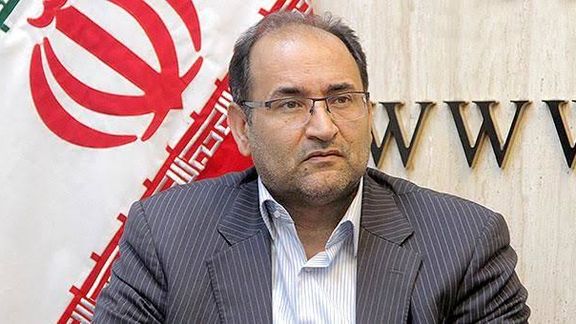
Protesting about the Interior Ministry's order to local officials not to cooperate with lawmakers during their visits to their constituencies, Jahanabadi said: "In my constituency there is a shortage of fresh drinking water, and it is essential for me to work closely with the local governor to solve the problem. "
"Otherwise, if the ministry is concerned that I might take advantage of the occasion to further my election campaign, it should know that I may not be a candidate for the next election, and there is no guaranty that the Guardian Council will endorse my qualifications," Jahanabadi added.
He pointed out that "the deputy interior minister comes from a military background. He has previously served in Iraq with not much of a success. I am surprised that he has been appointed to a key civilian position. This will affect public trust in the Majles and the government."
Jahanabadi also said during his speech in the parliament Sunday that some 80 lawmakers have signed a motion to impeach the Interior Minister. He questioned the presidium's attempt to stop the motion, adding that if it is tabled, many more lawmakers will support it. Last week, around 200 lawmakers were said to back the impeachment motion.
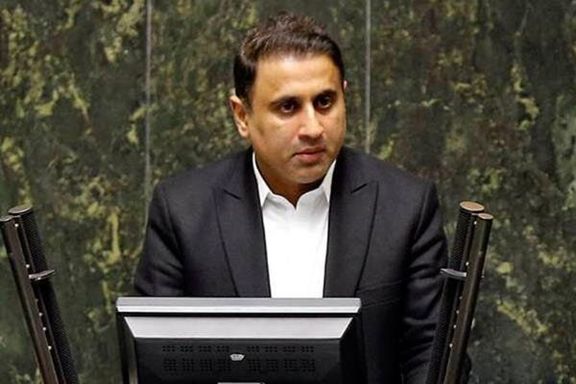
Meanwhile, other lawmakers have also criticized Raisi for the way he is running the affairs of the state. Moeineddin Saeedi, the lawmaker from Chabahar charged that instead of solving problems, the Raisi manipulates statistics and figures to justify his government's failure.
"Raisi talks about a flourishing economy as if he is living in another country," the lawmaker quipped.
He added that "part of the executive has become indifferent to people's problems and tends to fabricate figures to justify its inaction. The people are feeling the crunch in their livelihood as inflation rises and prices go higher."
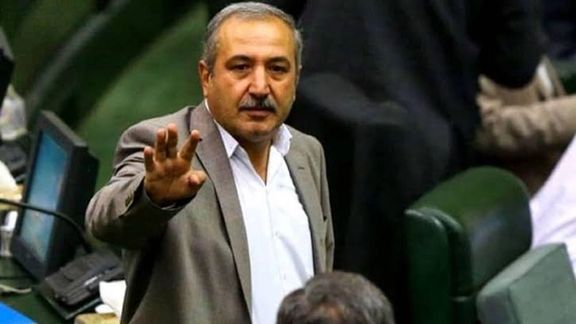
Another lawmaker, Jalal Mahmoudzadeh, predicted on Sunday that "An increasing number of Iranians are likely to turn to living in tents in the streets and parks as the problem of housing puts them under pressure with rising costs making it impossible for them to afford buying or even renting a place to live.
Rents have increases many fold in the past 5 years as the Iranian currency has lost most of its value and inflation has reached 70 percent with landlords refusing to rent properties at previous rates.
Meanwhile, referring to fabricated statistics that are being presented by government officials including the president, Mahmoudzadeh charged that "The government looks the people in the eye and lies to them."
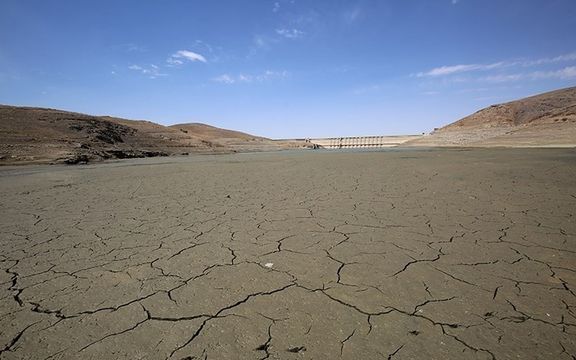
Within the past 25 years almost 25 million Iranians have been displaced amid water scarcity worries.
Mehdi Zare’, Professor of the International Research Institute of Seismology said: “There are about 12 million marginalized people in Iran, and almost 10 million of this population are directly facing problems caused by the water crisis.”
In an interview with Hamshahri online, he said water scarcity and the subsidence of the earth have deteriorated in Iran and according to geologists, seven provinces now face dire situations.
One of these provinces is Isfahan, where land subsidence has reached the residential areas. Tehran province is also not safe from subsidence and in recent months, many cases of land subsidence were witnessed on highways around the city.
Iran ranks fourth in land subsidence in the world and 30 provinces of the country are involved in it. It is said that the land subsidence in Iran is more than five times the world average.
The main reason for land subsidence in Iran is the draining of underground water and the digging of deep wells since the 1060s, Zare explained.
Last month, Iran International obtained documents revealing that Iranian officials are aware of dangerous land subsidence but are unwilling to share it with the public.
A confidential letter revealed that about 550 square kilometers of land in and around the capital Tehran (about the size of the UK city of Manchester or the US city of El Paso, Texas) is sinking an average of over 13 centimeters (about 5.12 inches) per year.
According to another document, 380 cities and towns and 9,200 villages are at risk of land subsidence.
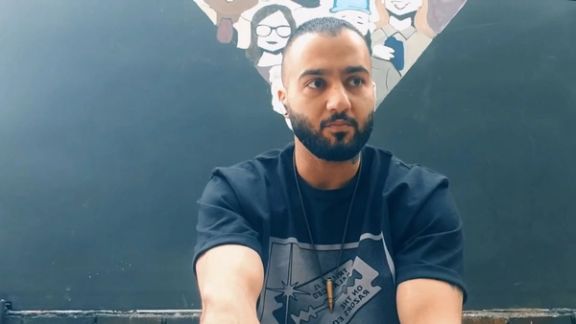
The court session of Iranian rapper Toomaj Salehi, arrested for support of the nationwide uprising, was held in Esfahan (Isfahan) on Sunday.
The 33-year-old rapper, violently arrested in late October, faces the death penalty for charges of 'corruption on earth'.
Toomaj salehi’s lawyer, Amir Raisian, said the court session was held behind closed doors and that the verdict will be announced within one week, explaining that he objected to six issues in Toomaj’s case, but the court only accepted one.
The rapper - an artist mostly known for his protest songs about Iran's social issues and injustice by the government - is accused of dissemination of lies through publishing tweets which is considered as an example of corruption of earth, a loose regime term to suppress opposition.
His interview with Canada’s CBC in which he called the regime a mafia "ready to kill the entire nation ... in order to keep its power, money and weapons", is also considered “cooperation with a hostile state”, as Canada is seen by Isfahan court as a hostile government.
His other charges are insulting the founder of Islamic Revolution Ruhollah Khomeini and Supreme Leader Ali Khamenei.
Raisian also stated that the court gave him only half an hour of time to defend his client who has been in prison in the last eight months.
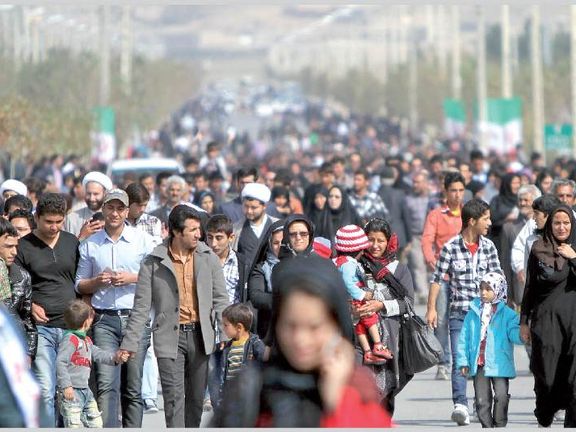
An Iranian sociologist who was an adviser to reformist President Mohammad Khatami (1997-2005), says Iranians perceive the current power structure as an alien entity.
"When the government is perceived as a stranger, the society cannot tolerate its shortcomings." Hossein Valeh said in an interview with Roiuydad24 on Saturday. The government has lost trust because of its aversion to being inclusive, he added.
What is worse is that "The regime has widened the gap between itself and the nation instead of trying to fill it." It has become less attentive to popular demands.
Pervasive political instability in Iran began in 2017, when after years of deteriorating relations with the West and international sanctions, the economy became stagnant. Anti-regime protests that started in December of that year in fact never stopped and in September 2022 millions of disenchanted people came out into the streets nationwide, posing the most serious challenge to the clerical regime in four decades.
Valeh, a former diplomat and a current assistant professor at the Department of Philosophy of the Shahid Beheshti University in Tehran, also told Rouiydad24: "Generally, when there is a divide between the government and the nation, the country becomes polarized."
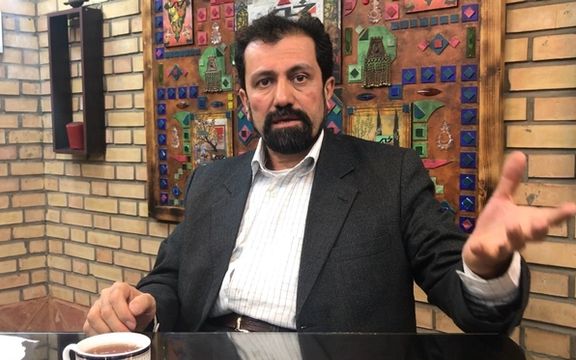
"In such a situation, no one hears the voice of truth and instead, everyone will listen to those who reduce the other side to the level of an enemy," Valeh said, adding that each side perceives any positive news about itself as a fact and any negative statement as a lie without bothering to establish the truth."
The sociologist maintained: "The gap between the government and the nation is currently deep and wide. As a result, we tend to believe any fake news which supports our point of view or rules out the other side's opinion." He added: Maciavelli has taken over our collective unconscious."
Under these circumstances expectations from the government will rise. The people will minimize its achievements and maximize its shortcomings in their perceptions.
He explained that there are accumulated divides in Iran based on religious versus non- religious, traditional versus modern and liberal versus despotic dichotomies. Valeh added that since the 18th century, this accumulated dichotomies have been the driving force of political developments while also creating social conflicts.
The people's distrust of the government will increase the cost of governance and make progress difficult. It will eventually erode the government's legitimacy altogether. Meanwhile, in the absence of public trust, the government cannot make up for its inefficiency.
Particularly dangerous is the divide between the very young generation and the aging clerics supported by the Revolutionary Guard who try to keep the society within the bounds of their isolationist religious ideology.
Along the same line, highlighting the divide between the state and the nation, former government spokesman Ali Rabiei wrote in Etemad Online that it appears there is a tendency in the government to oppose people's happiness. "Regrettably the government has forgotten the events that took place during the protests in the fall of 2022, and that is dangerous.
He pointed out that the government tends to ignore all the explanations and reasons that have been highlighted for last year's events, and it does not understand the people's concerns about the present and the future. The result, he said, is an unhappy and frustrated society.
Rabiei added: "The political depression reveals itself as lack of interest in political participation within the system and a tendency to protest."
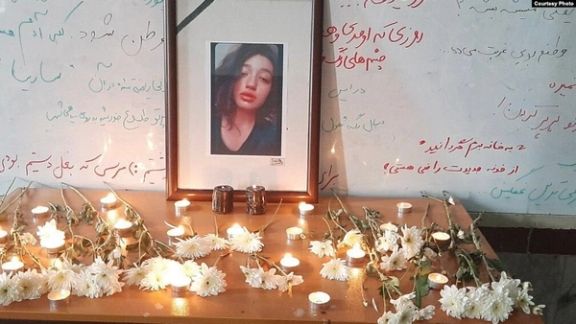
The government is threatening families of protesters who were killed in the Iranian uprising not to hold birthday ceremonies at their loved ones’ graves.
The past few days marked the birthdays of several of the most iconic protesters who were either shot dead by security forces, such as Mahdis Hosseini and Peyman Manbari, executed on trumped up charges such as Saeed Yaqoubi, or beaten to death such as 16-year-old Sarina Esmailzadeh whom so many have come to cherish.
Iranian social media is full of posts that share a common structure, all mentioning the name of a dead protester and what their age would be if they were alive on their birthdays.
While Iranians on social media are paying tribute to them as “the young and enlightened generation of Iran,” the authorities have put pressure on their families to prevent gatherings for their birthdays fearing larger antiregime events.

Sarina Esmailzadeh died on the way to hospital after being severely beaten in the head with batons during the early days of nationwide protests following the death in custody of 22-year-old Mahsa Amini. She had joined a protest in Karaj, a large city half an hour from the capital Tehran, on September 21. Regime officials claim she jumped from a neighbor’s rooftop and killed herself. They insist her death was unrelated to protests, but the nature of her injury and death was verified by Amnesty International.
The 16-year-old YouTuber, whose funeral ceremony and the 40th day after her death turned into large demonstrations, was among the first martyrs of the Iranian uprising and would have become 17 today if the Islamic Republic was not in power in Iran. Her name is now a trendy hashtag on twitter with tens of thousands of people talking about her or her video blogs on her birthday.
Sarina, who sang Hozier’s 2013 hit song on a family road trip to the historic city of Kashan in her first vlog on YouTube titled ”My First Vlog!”, has a trove of posts about Iranian teens and the problems people face in the society.
"Iranian teenagers are no longer the teenager of 20 years ago. They are aware of the situation in the world and ask themselves what they should have less than American teenagers," she said in of her whimsical yet witty videos after pointing out that the people in Iran only expect welfare and prosperity.
Former political prisoner Hossein Ronaghi said all the Iranian nation seeks justice for Sarina, calling on people to honor her and keep her memory alive however they can.
Mahdis Hosseini, another teenager would have also turned 17 on Friday if she was not injured by bullets during a protest in the northern city of Amol on September 21. She went into hiding for a couple of weeks without receiving hospital care, for fear of not being arrested. Two days after she returned home, she was left alone for several hours, and when her mother returned, she found her dead body.
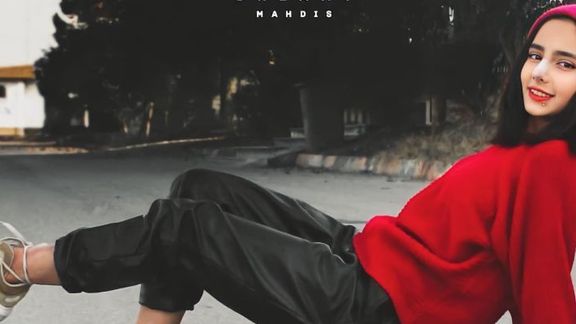
Peyman Manbari, who would have turned 26 on Saturday, was killed during a rally in the Kurdish-majority city of Sanandaj in October. His family and friends had planned to gather at his grave but had to cancel under threats and pressure by Iran’s intelligence agencies.
Agents contacted the Manbari family and “told them that they don't even have the right to have a birthday for him in their own home," said Fatemeh Heydari, who lost her brother Javad in a crackdown on a protest rally in the city of Qazvin. “How many young lives, how many grieving families, how much endless sufferings are enough to satisfy your criminal nature so that you stop taking the lives of our loved ones?” she asked.
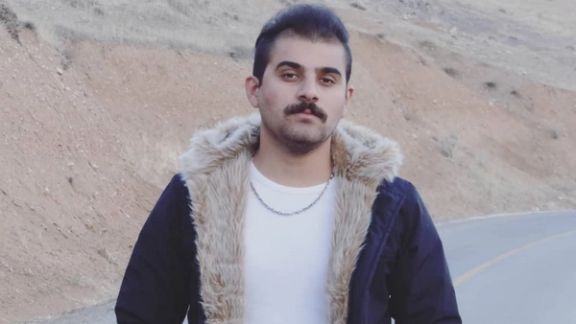
If not executed, Saeed Yaghoubi's 38th birthday was also on Saturday. Saeed was hanged along with Saleh Mirhashemi and Majid Kazemi in May after they were convicted over the death of two IRGC Basij militia members and a police officer in protests in November.
Human rights campaigners say they were tortured into confessions, and there was no reliable evidence against them.
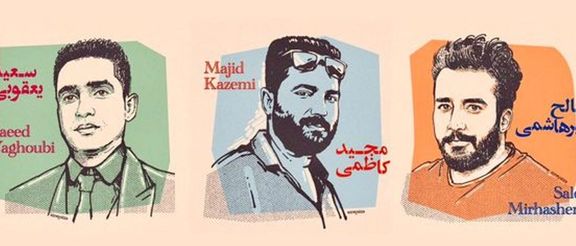
Leaked audio from police radio chatter from the night the three regime agents were killed indicates that they were shot by friendly fire of plainclothes forces. The victims had alibis, with the family of one of the victims saying there is CCTV video footage of their son at work.
According to the cousin of one the executed protesters, "the family of Saeed Yaghoubi (Yaqoubi) was not allowed to be near his grave on his birthday."
Iran’s exiled prince Reza Pahlavi also tweeted in their honor, decrying “Khamenei’s child and youth-killing regime.” “The memories of these brave children of Iran are eternal," he added.